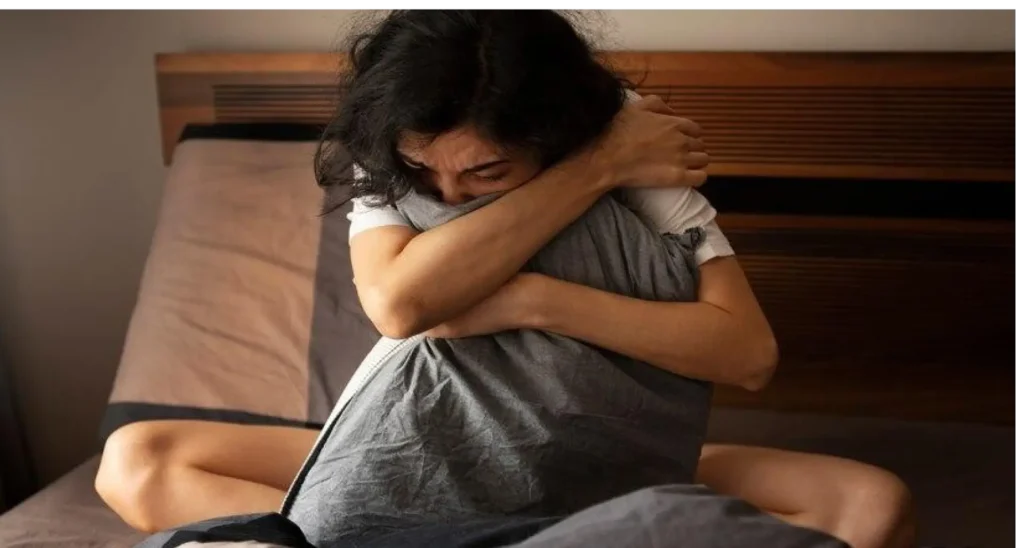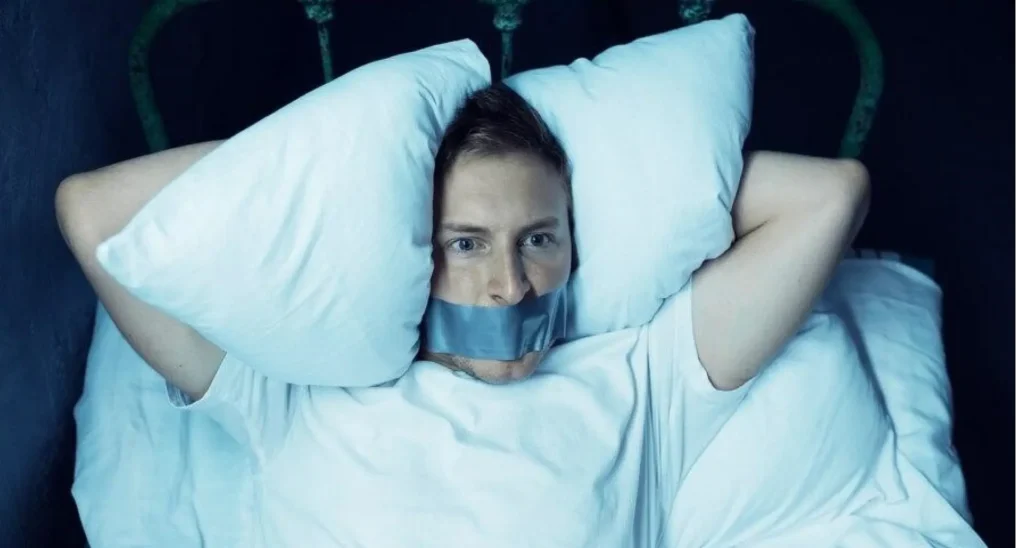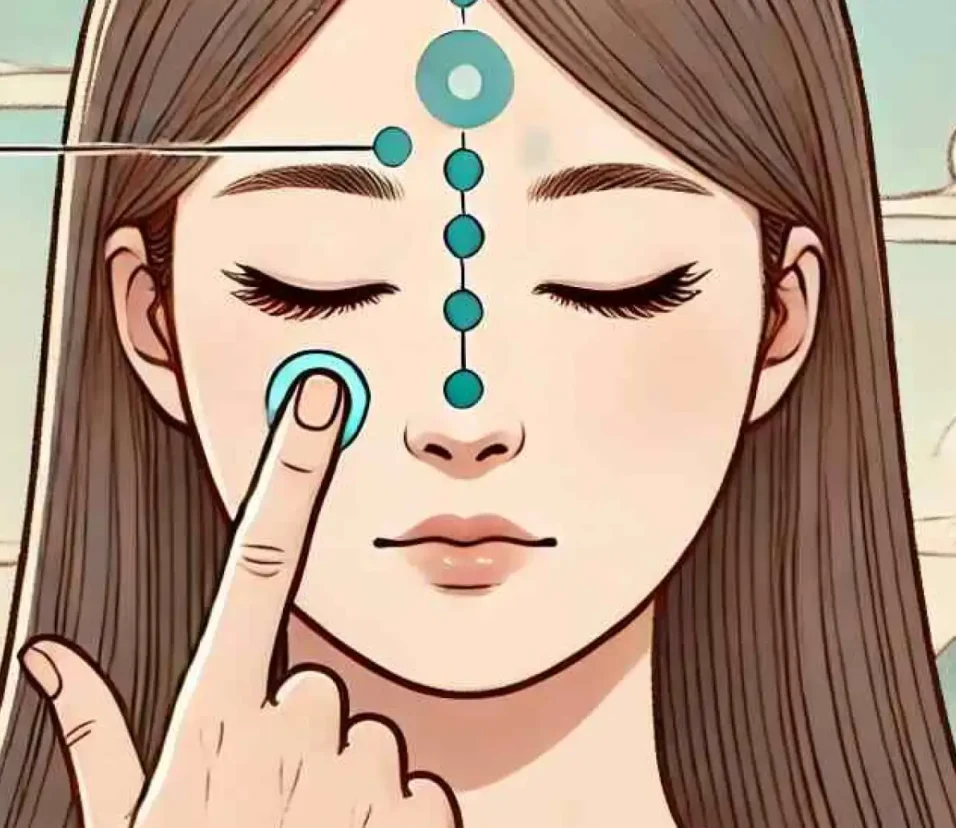What Will Happen if You Don’t Sleep?
Sleep is a fundamental aspect of human health and well-being, yet many people underestimate its importance. Sleep allows the body to rest, repair, and rejuvenate, playing a crucial role in maintaining physical and mental health. Mental health experts and extensive research suggest that lack of sleep can lead to a myriad of negative outcomes, affecting everything from cognitive function to emotional stability.
Chronic sleep deprivation is linked to severe health issues such as anxiety, depression, and impaired judgment. Understanding what happens when you don’t sleep is essential for recognizing the importance of adequate rest and taking steps to prioritize sleep in our daily lives.
Understanding Sleep deprivation
Sleep deprivation occurs when an individual fails to get enough sleep to meet their body’s needs, leading to a range of physical and psychological consequences. This condition can result from various factors, including lifestyle choices, medical conditions, and demanding schedules.
Over time, chronic sleep deprivation can contribute to serious health problems such as cardiovascular disease, weakened immune function, obesity, and mental health disorders.
By grasping the full scope of sleep deprivation, individuals can better appreciate the necessity of prioritizing quality sleep and implementing habits that support restful nights.
The Impact of Sleep Deprivation on Your Health

The immediate effects of sleep deprivation are often felt within just one night of poor rest. When the body and mind do not receive adequate sleep, several short-term symptoms can arise, impacting daily functioning and overall well-being.
These immediate effects can be both physical and mental, disrupting various aspects of a person’s life.
- Fatigue: Lack of sleep leads to a general feeling of tiredness and low energy, making it difficult to perform daily tasks efficiently.
- Impaired Cognitive Function: Sleep deprivation can significantly reduce attention, concentration, and problem-solving abilities.
- Mood Changes: Increased irritability, stress, and anxiety are common, making social interactions more challenging.
- Reduced Motor Skills: Coordination and reaction times can be impaired, increasing the risk of accidents and injuries.
- Weakened Immune Response: Even short-term sleep loss can diminish the body’s ability to fend off infections and illnesses.
- Increased Appetite: Sleep deprivation often disrupts hormones that regulate hunger, leading to increased cravings and potential weight gain.
Physical Effects of Long-Term Sleep Deprivation
Long-term sleep deprivation has profound and far-reaching consequences on physical health. When the body consistently lacks the restorative benefits of sleep, numerous physiological systems are adversely affected, leading to chronic health conditions and a decrease in overall well-being. Understanding these physical effects highlights the critical importance of maintaining a healthy sleep schedule.
- Cardiovascular Problems: Chronic sleep deprivation is linked to hypertension, increased heart rate, and a higher risk of heart disease and stroke.
- Weight Gain and Obesity: Disrupted sleep affects the hormones that control hunger and appetite, leading to overeating and weight gain.
- Diabetes Risk: Poor sleep patterns are associated with insulin resistance, increasing the risk of developing type 2 diabetes.
- Hormonal Imbalances: Long-term sleep deprivation disrupts the balance of various hormones, including those regulating stress, growth, and metabolism.
- Chronic Pain: Lack of sleep can exacerbate chronic pain conditions, creating a vicious cycle of discomfort and poor sleep quality.
- Digestive Issues: Sleep deprivation can lead to gastrointestinal problems, including an increased risk of developing ulcers and irritable bowel syndrome (IBS).
How Long Can Someone Go Without Sleep Until They Die?
The question of how long a person can survive without sleep is both complex and concerning, as prolonged sleep deprivation can have dire consequences. While exact timelines can vary depending on individual health and circumstances, research and documented cases provide some insights. The longest recorded instance of intentional sleep deprivation was by Randy Gardner, a high school student who stayed awake for 11 days in 1964.
Though he survived, he experienced severe cognitive and physical impairments. Extreme and prolonged lack of sleep can lead to a breakdown of bodily functions and severe mental disturbances. Animal studies have shown that continuous sleep deprivation can be fatal within a few weeks.
While human data is less definitive, it’s evident that going without sleep for extended periods is incredibly dangerous and can lead to critical health failures, underscoring the necessity of regular, restorative sleep for survival.
What Happens if You Don’t Sleep for a Day?
Missing a full night’s sleep can significantly affect both physical and mental functioning, even if it’s just for a day. The body and brain begin to show signs of fatigue and reduced performance, making daily tasks more challenging and less safe.
Fatigue Sets In: Noticeable tiredness
Cognitive Decline: Reduced concentration
Mood Swings: Increased irritability
Impaired Judgment: Poor decision-making
Slower Reactions: Delayed response times
Increased Hunger: Heightened appetite
Physical Discomfort: Headaches, muscle aches
What Happens if You Don’t Sleep for 24 Hours?
Going without sleep for 24 hours can have a pronounced impact on your body and mind. After a full day of no sleep, you will likely experience a range of symptoms that impair your ability to function normally, both mentally and physically.
Cognitive Impairment: Diminished thinking skills
Memory Issues: Difficulty recalling information
Emotional Instability: Heightened anxiety and stress
Reduced Alertness: Increased drowsiness
Compromised Coordination: Poor motor skills
Vision Problems: Blurred vision
Immune Response: Lowered immunity
What Happens if You Don’t Sleep for 2 Days?
Going without sleep for 48 hours significantly exacerbates the negative effects on your body and mind. Cognitive functions deteriorate further, leading to severe impairments in memory, decision-making, and problem-solving abilities. Hallucinations and micro-sleeps—brief episodes of involuntary sleep—have become more common, making it difficult to stay awake and function effectively.
Physically, your immune system weakens further, increasing susceptibility to illnesses, and you may experience heightened pain sensitivity and muscle fatigue. Emotional regulation is severely compromised, often resulting in intense mood swings, anxiety, and even depressive symptoms.
At this stage, the risk of accidents and injuries is markedly higher due to impaired motor skills and reduced reaction times.
Staying Awake for 36 Hours Physical Effects
Remaining awake for 36 consecutive hours can have profound physical repercussions on the body. As sleep deprivation persists, the body’s ability to function optimally deteriorates rapidly. Physical fatigue intensifies, leading to pronounced weakness and exhaustion. Muscles may ache, and coordination becomes increasingly impaired, heightening the risk of accidents and injuries.
The immune system weakens further, making the body more susceptible to infections and illnesses. Additionally, prolonged wakefulness can disrupt normal metabolic processes, contributing to fluctuations in appetite, energy levels, and hormone regulation.
Overall, the physical toll of staying awake for such an extended period underscores the critical importance of prioritizing adequate rest for optimal health and well-being.
Mental & Physical Effects of 5 Days Without Sleep

Enduring five days without sleep exacts a severe toll on both the mind and body, pushing them beyond their limits. Mental faculties deteriorate rapidly, with cognitive functions such as memory, attention, and concentration becoming severely impaired. Hallucinations, paranoia, and delusions may occur, blurring the line between reality and imagination.
Physically, the body is in a state of extreme exhaustion, with muscles fatigued and coordination severely compromised. Immune function is severely weakened, leaving the body vulnerable to infections and illnesses. Emotional instability intensifies, with mood swings, irritability, and heightened anxiety becoming overwhelming.
The cumulative effects of prolonged sleep deprivation underscore the critical importance of prioritizing restorative sleep for overall health and well-being.
What to Do with Staying Awake for 72 Hours?
Staying awake for 72 hours, an entire three days without sleep is an extreme and potentially dangerous feat that can have severe consequences for both mental and physical health. If you find yourself in this situation, it’s crucial to prioritize rest and recovery as soon as possible.
Immediately cease any activities that require focus or physical exertion to minimize the risk of accidents or injuries. Hydrate your body adequately and nourish it with healthy foods to support energy levels and immune function. Avoid stimulants like caffeine, as they may only exacerbate the problem and disrupt your ability to fall asleep eventually.
Once you’re able to do so safely, prioritize a full night of uninterrupted sleep to allow your body and mind to recuperate from the prolonged period of wakefulness. If you continue to experience severe symptoms or concerns about your health, seek medical attention promptly.
How Can You Go 10 Days Without Sleep?
Attempting to stay awake for 10 days straight is an incredibly dangerous and ill-advised endeavor that poses serious risks to both physical and mental health. While it’s theoretically possible for the human body to survive without sleep for extended periods, doing so can lead to severe consequences, including hallucinations, cognitive impairment, and even death.
However, it’s essential to emphasize that intentionally depriving oneself of sleep for such an extended duration is highly unnatural and unhealthy. Instead of seeking ways to prolong wakefulness, it’s far more beneficial to prioritize establishing healthy sleep habits and seeking help if struggling with insomnia or sleep disorders.
If you or someone you know is considering attempting prolonged wakefulness, it’s crucial to intervene and seek professional guidance to prevent potentially life-threatening outcomes.
What Happens if You Don’t Sleep for 11 Days?
Attempting to go without sleep for 11 days is an extreme and perilous undertaking that can have catastrophic effects on both physical and mental health. Prolonged sleep deprivation of this magnitude can lead to severe cognitive and physiological impairments, posing significant risks to overall well-being.
1. Severe Cognitive Decline
Marked memory loss, affecting both short-term and long-term recall. Inability to concentrate or focus on tasks, severely impairing decision-making abilities. Cognitive processing slows down, leading to difficulty comprehending information or making logical connections.
2. Hallucinations and Delusions
Vivid visual and auditory hallucinations are often indistinguishable from reality. Delusional thinking, where individuals may believe in scenarios that have no basis in reality. Heightened paranoia, with a distorted perception of the environment and people around them.
3. Physical Exhaustion
Pronounced muscle weakness and fatigue, making simple movements challenging. Impaired motor function, with coordination and balance severely compromised. Physical sensations of pain and discomfort intensify, further contributing to overall exhaustion.
4. Weakened Immune System
Immune function becomes severely compromised, increasing susceptibility to infections and illnesses. The body’s ability to fight off pathogens diminishes, leading to prolonged recovery times from common ailments. Chronic sleep deprivation can exacerbate pre-existing health conditions due to the weakened immune response.
5. Emotional Instability
Heightened anxiety and emotional volatility, with mood swings becoming more frequent and intense. Irritability and agitation increase, leading to interpersonal conflicts and strained relationships. Emotional regulation becomes virtually impossible, resulting in unpredictable emotional outbursts.
6. Risk of Psychosis
Loss of touch with reality, where individuals may experience a disconnect from their surroundings. Paranoia and irrational fears escalate, making it challenging to distinguish between what is real and what is imagined. The onset of psychosis becomes a real possibility, requiring immediate medical intervention to prevent further deterioration.
7. Potential for Death
Extreme exhaustion pushes the body’s organs to their limits, increasing the risk of organ failure. Without intervention, prolonged sleep deprivation can lead to a cascading series of health crises, ultimately resulting in death. Medical attention is imperative to mitigate the life-threatening consequences of severe sleep deprivation.
How to Improve Quality Sleep – Expert Tips
Achieving high-quality sleep is essential for overall health and well-being. Incorporating expert-recommended strategies into your nightly routine can significantly enhance the depth and effectiveness of your sleep, leading to improved cognitive function, mood stability, and physical health.
Establish a Consistent Sleep Schedule:
- Go to bed and wake up at the same time every day, even on weekends, to regulate your body’s internal clock.
- Aim for 7-9 hours of sleep per night, ensuring you allow enough time for restorative rest.
Create a Relaxing Bedtime Routine:
- Engage in calming activities before bed, such as reading, gentle stretching, or taking a warm bath, to signal to your body that it’s time to wind down.
- Limit exposure to screens (phones, computers, TVs) at least an hour before bedtime, as the blue light emitted can disrupt melatonin production and hinder sleep.
Optimize Your Sleep Environment:
- Make your bedroom conducive to sleep by keeping it cool, dark, and quiet.
- Invest in a comfortable mattress and pillows that support your preferred sleeping position.
- Consider using white noise machines or earplugs to block out disruptive sounds that may disturb your sleep.
Monitor Your Diet and Hydration:
- Avoid consuming caffeine and heavy meals close to bedtime, as they can interfere with your ability to fall asleep and stay asleep.
- Limit alcohol intake, as it can disrupt sleep patterns and lead to fragmented sleep throughout the night.
- Stay hydrated throughout the day, but avoid excessive fluid intake in the hours leading up to bedtime to minimize nighttime awakenings.
Manage Stress and Anxiety:
- Practice relaxation techniques such as deep breathing exercises, meditation, or progressive muscle relaxation to alleviate stress and promote a calm state of mind before bed.
- Consider keeping a worry journal to jot down any concerns or thoughts racing through your mind, allowing you to release them before attempting to sleep.
Seek Professional Help if Needed:
- If you continue to experience persistent sleep difficulties despite implementing lifestyle changes, consult with a healthcare professional or sleep specialist for personalized guidance and treatment options.
- Sleep disorders such as insomnia, sleep apnea, or restless leg syndrome may require professional intervention to address underlying issues and improve sleep quality effectively.
The Bottom Line
Understanding what will happen if you don’t sleep is crucial for recognizing the profound impact sleep deprivation can have on both physical and mental health. From impaired cognitive function to weakened immune response, the consequences of inadequate sleep are far-reaching and can significantly diminish overall well-being.
By prioritizing quality sleep and implementing expert-recommended strategies to improve sleep hygiene, individuals can protect their health and vitality, ensuring they reap the countless benefits that come from a good night’s rest.
FAQs
Question 1: How to Stay Awake after No Sleep?
Ans: To stay awake after no sleep, try to engage in stimulating activities like taking a brisk walk, drinking caffeine in moderation, or splashing cold water on your face. Additionally, try to keep your environment well-lit and avoid sitting or lying down for long periods, as this can increase drowsiness.
Question 2: How to Function on No Sleep?
Ans: Functioning on no sleep can be challenging but not impossible. Prioritize tasks that require the most focus and concentration early in the day. Take short, frequent breaks to prevent mental fatigue, and consider consuming small, healthy snacks to maintain energy levels. Stay hydrated and avoid heavy meals that can induce drowsiness.
Question 3: How to Survive Without Sleep?
Ans: Surviving without sleep is not sustainable in the long term and can have severe health consequences. However, if faced with short-term sleep deprivation, prioritize restorative activities like power naps, practicing relaxation techniques, and seeking support from friends or family. If sleep deprivation persists, seek medical attention promptly.
Question 4: If You Stay Up All Night, What Will Happen?
Ans: Staying up all night can lead to various immediate and long-term consequences. In the short term, you may experience fatigue, impaired cognitive function, mood swings, and increased hunger. Prolonged sleep deprivation can lead to hallucinations, weakened immune function, and increased risk of accidents or injuries. It’s crucial to prioritize adequate sleep for overall health and well-being.
References
Title: What Are Sleep Deprivation and Deficiency?
Link: https://www.nhlbi.nih.gov/health/sleep-deprivation
Written & Published by: NIH
Title: 10 Things That Happen to Your Body When You Lose Sleep
Link:https://www.healthline.com/health/healthy-sleep/what-happens-to-your-body-when-you-lose-sleep
Written & Published By: Healthline
Title: Here’s What Happens When You Don’t Get Enough Sleep
Link: https://health.clevelandclinic.org/happens-body-dont-get-enough-sleep
Written & Published By: Cleveland Clinic















